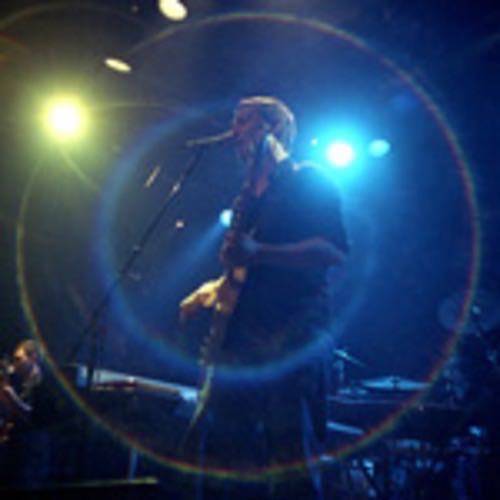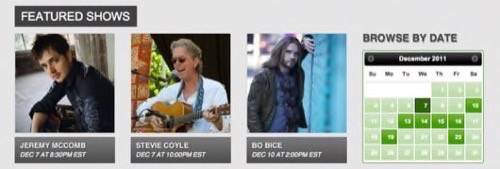These days, with the traditional structures of the music industry blown wide open by the Internet, artists are constantly looking for new ways to market themselves and, if at all possible, earn money in the process. From streaming services to DIY online marketing tools, there’s seemingly no limit to the digital tools available to musicians these days.

One such tool, StageIt, is hoping to put an innovative spin on live performances by bringing them online.
Here’s the concept: a band or solo musician, however established they may be, wants to host a live performance from their garage, basement, living room or wherever. They can organize a show to be streamed on StageIt and start selling tickets, which can be set to any price. They even support a name-your-own-price scheme similar to what some artists have experimented with for album sales. Fans of the artist can watch the performance from their browser without having to get in the car and stand in line at a venue. If they like what they hear, attendees can add money to a virtual “tip jar,” which provides another incremental revenue stream for artists.

The service recently landed an investment from Sean Parker, who’s track record in the digital music space includes co-founding Napster and being an eager investor in Spotify. He is perhaps most well known for being the founding president of Facebook, which made its own foray into the music space this year.
StageIt is in no way going to replace concerts at live venues, but the service could enable smaller artists to promote themselves in ways not previously possible. Not every market has a music scene with legitimate venues, and in urban markets where music is thriving, not every unsigned artist can get on a bill right away. Something like this could provide a risk-free way to build up an audience online or at least play for fans who might not live near where the band is likely to play in person.
To really take off with users, StageIt is going to need to attract the attention of bigger artists, or at least up-and-coming musicians with especially substantial followings.
The idea isn’t too far off form the online group listening craze we’ve seen develop this year. If services like Turntable.fm and Chill can get people to watch a DJ set or video together on the Internet, who’s to say people won’t attend a virtual concert as well?
Lead photo by givikat

















